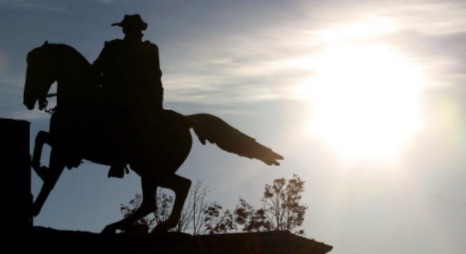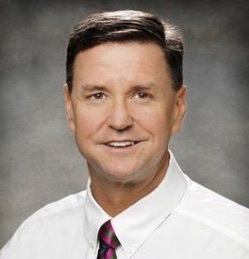| J. E. B. Stuart V: Confederate Monuments Can Be A Starting Point of Honest Discussion |
| Article in the Richmond Times By J. E. B. Stuart, V Date: Sept. 2, 2017  Recent events have thrust to the forefront questions about the future of Confederate monuments and statues. A festering wound has been violently ripped open again. The divisions are deep, yet I hope there can be healing. Recent events have thrust to the forefront questions about the future of Confederate monuments and statues. A festering wound has been violently ripped open again. The divisions are deep, yet I hope there can be healing.I condemn those groups who seek to divide us as a nation. It has been tragic to witness recent events here in Virginia. So let me be clear: I condemn neo-Nazis, racists and any other groups that seek to divide us on the grounds of race or religion. I condemn the vandalism and destruction of property, public or private. Unfortunately, these groups who promote hate and division have latched onto our ancestors; they do not honor their memory, and they undermine historic preservation efforts. People have asked how I feel about the controversy over the monuments. The J.E.B. Stuart statue on Monument Avenue does not belong to our family but to the city of Richmond and the state of Virginia. It is not for me to decide, but I ask those who seek its removal: What is your goal? History and our collective memory can never be altered. Some have expressed a goal of banishing forever the symbols of past oppression and injustice — but eliminating the details of past injustice has never been a successful means of healing; it has just led to making the same mistakes over again. I ask the same question of those who oppose the removal of the monuments. As a direct descendent, I have a deep desire to honor the general, who was a brave and courageous soldier. But that is a personal sentiment, and communities need not devote resources to my sentiment. Some have expressed a desire to “preserve history.” Indeed, preserving history is a double-edged sword. Are we preserving history so that we can do better in the future, or are we simply preserving our place of privilege in it? *** Who was the man on the monument? My ancestor, Major Gen. James Ewell Brown Stuart was born in Patrick County, Virginia. He was the eighth of 11 children. He started college at Emory and Henry then received an appointment to West Point, where he graduated in 1854. His commandant at the time was Robert E. Lee. He was assigned to the U.S. Cavalry in the Midwest and sustained his first war wound from a gunshot at the cavalry battle against the Cheyenne Indians on the south fork of the Solomon River in 1857. This was one of the earlier battles waged by the United States in a decades-long campaign against Native Americans. As the Civil War erupted in 1861, Stuart answered the call to defend his home state of Virginia, like so many others. His father-in-law, Gen. Phillip St. George Cooke, fought for the Union army. The family was forever torn apart. In fact, Stuart’s son, originally named for his maternal grandfather, was renamed James Ewell Brown Stuart at the outbreak of the Civil War. My great-great grandfather and many others who fought for the Confederacy never wrote about fighting to preserve the enslavement of other human beings. In fact, many found the institution of slavery abhorrent. These soldiers chose to defend their home states, which included slavery. Today, that moral choice stands as the largest stain on our Southern ancestors, regardless of their struggles of conscience or the standards of the day. General Stuart died at the age of 31 in the home of his brother-in-law Dr. Charles Brewer (married to Maria Pendleton Cooke, daughter of Stuart’s father-in-law, the Union general) from a gunshot wound sustained the day before at the Battle of Yellow Tavern in Henrico County. Dr. Brewer’s home was on West Grace Street, now the Richmond police headquarters. His funeral was at St. James Church on Franklin Street, and he is buried in Hollywood Cemetery. *** Other descendants of Confederate leaders have made public statements. Some agree that the monuments should all be removed and are “fine” with it. I disagree.  Slavery and many other injustices are part of our history. They serve as reminders of our struggles as a nation. We should be honest with each other. We must be civil. There is no room for bombast, fiery rhetoric, or ignorance. Let’s have that discussion and put our shared history in context. Let’s use the monuments as a starting point. Slavery and many other injustices are part of our history. They serve as reminders of our struggles as a nation. We should be honest with each other. We must be civil. There is no room for bombast, fiery rhetoric, or ignorance. Let’s have that discussion and put our shared history in context. Let’s use the monuments as a starting point.We as a community bear the collective responsibility to come to peace with past injustices and do better in the future. The sacrifices of all our ancestors should never be marginalized. The piecemeal revision of our shared history takes away the shining light that defines us as a nation. To borrow the tagline from the Washington Post: Democracy dies in darkness. J.E.B. Stuart V, M.D. is an orthopedic hand surgeon practicing in Richmond. Contact him at monumentavenue@outlook.com |
| Click Here for More Articles |